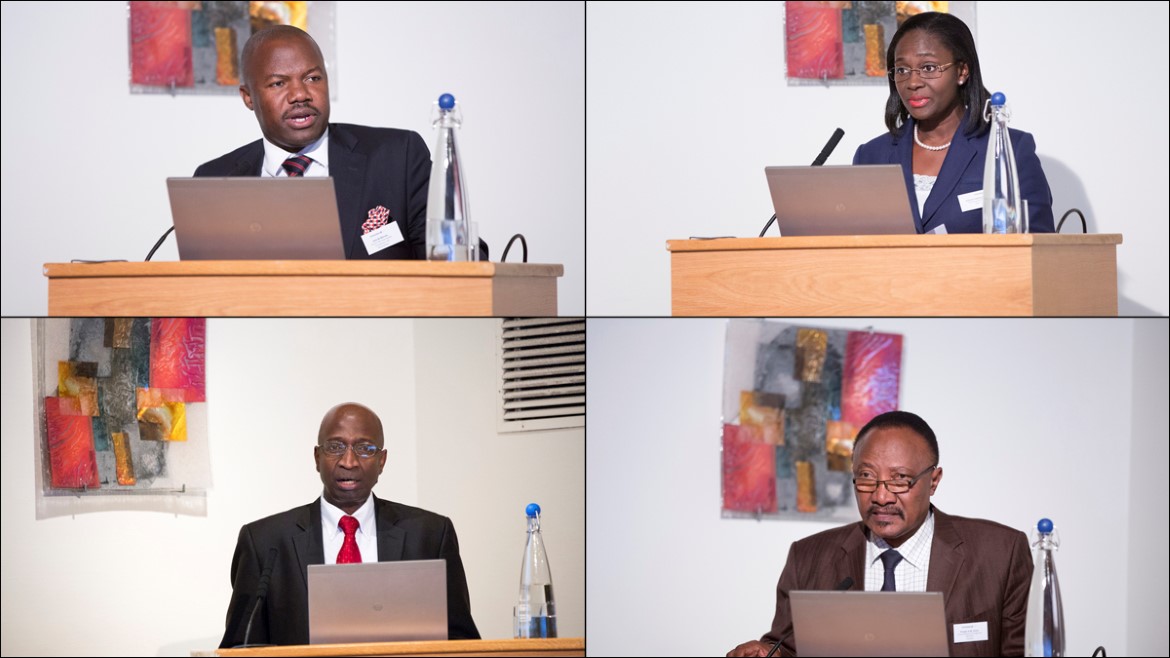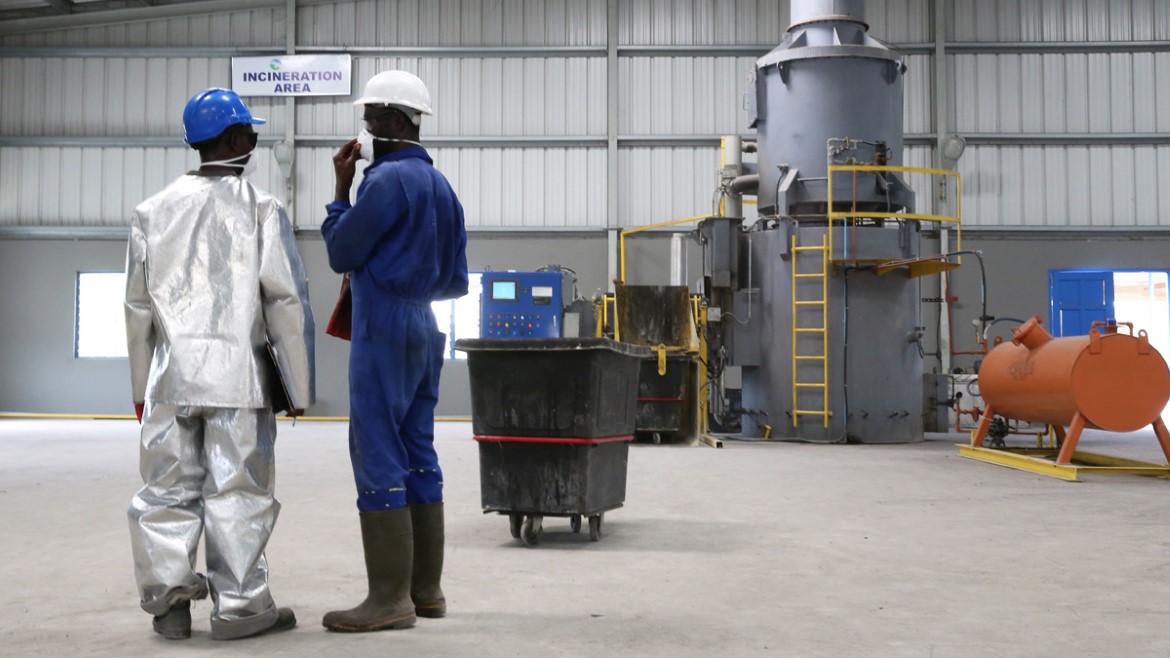
Experiences from OfD implementers
Representatives from Tanzania, Uganda, Ghana and Mozambique shared their experiences as OfD partners at the anniversary event.
Tanzania – Needed frameworks
Tanzania started its exploration of oil and gas in the 1950s. Norway has cooperated with Tanzania in this field since the 1980s.
- We had neither an institutional framework, nor a regulatory framework in place. Norway sent us their best brains available, says Prosper A. M. Victus, a mechanical engineer with extensive experience in oil and gas management in Tanzania.
Capacity building within data management was Norway’s first step in the OfD collaboration.
Discoveries required capacity
- Because of the interventions from Norway, we started seeing investment on the ground. Exploration accelerated. In 2001 we made some discoveries, also in the deep waters. We were very excited, but soon realized that we also faced some real challenges.
- We faced a momentous task. How do we manage the resources that had been found? What kind of capacities were now required?
Tanzania needed to monetize on their resources. Reforms and development of institutions were necessary.
- OfD looked into the whole horizon of the oil and gas sector in the country. We now have a new legislation for revenue management, Victus says.
A lesson learned about communication
In retrospect, Victus reflects on what he wished Tanzania would have done differently. The gas discoveries created expectations of swift income growth and job creation among the citizens.
- The first thing that I would have looked at is to address the nature of anxieties and expectations on the ground, and focus on a communications strategy, Victus says.
- Read more about OfD cooperation with Tanzania
Uganda – Preparation is key
Norway and Uganda have collaborated through the OfD programme since 2006.
- The benefits will come when the revenues come. But even now, the activities improve the well-being of the population through the emphasis on participation and consultation, says Ernest Rubondo, head of the Ugandan Petroleum Directorate.
Petroleum activities may affect natural environments and local communities severely. Petroleum governance also implies hearing out stakeholders and implementing mitigating actions through for example Strategic Environmental Assessment processes.
Challenges
Rubondo also points at difficulties in the implementation of the OfD programme.
The programme did not have sufficient consideration for the necessary time to consult during the formulation of acts and policies.
Uganda also experienced a loss of key human resources by the inability to retain staff after capacity building efforts.
- I think one of the things we are learning from the collaboration with the Norwegians is the importance of planning and preparing, Rubondo concludes.
- Read more about the Ofd cooperation with Uganda
Mozambique – A long-time partner
Mozambique started cooperating with Norway already 19 years before the OfD programme began.
Transparency based on Norwegian experiences
Mozambique’s national petroleum institute INP regulates all petroleum related activities whilst the national oil company ENH takes care of the commercial interests of the state.
José de Barros has worked as a legal advisor in Mozambique’s petroleum sector for more than twelve years. Barros currently works for ENH.
- We have developed a very transparent consistent legal framework, Barros states.
- Our institutional framework is very similar to the Norwegian system. It was put in place, so we would be ready when the boom of discoveries would come.
Prepared for discoveries
- We have a management system that works. We can run our licence bidding without external support, Barros says.
Mozambique now has people with the capabilities to deal with petroleum operations.
- But not enough, Barros adds.
- Read more about the OfD cooperation with Mozambique
Ghana – The complexities of large discoveries
Ghana made a major offshore oil discovery in 2007.
- The discovery of the Jubilee field exposed our inner difficulties in handling a full-blown industry. Ghana suddenly had to deal with the complexities of producing oil in deep water, says Ms. Vivienne Gadzekpo Duker.
Ms. Duker is the legal director of Ghana’s Ministry of Petroleum. She participated in developing Ghana’s legal framework in the petroleum sector.
Permanent knowledge
Ghana approached Norway after a careful consideration of the country’s alternatives. Duker says some programmes use consultants that rarely travel inside the country.
- No real knowledge of capacity development stays in the country then. The OfD programme has developed local core teams equipped with knowledge and competencies. We can regulate the petroleum sector long after the programme period ends, Duker says.
Tailored to the country
Duker describes the cooperation with Norway as a close relationship based on trust. She mentions consolidation of competencies between Norway and Ghana as a key factor for success.
- The assistance was adapted to local circumstances rather than a one-size-fits-all-package, Duker says.
The usage of the Norwegian research vessel RV Dr. Fridtjof Nansen is another example of how Norway has adapted to the local circumstances. The ship carried out environmental baseline studies in Ghanaian waters. The research expeditions also trained Ghanaians for similar activities in the future.
- Read more about the OfD cooperation with Ghana

